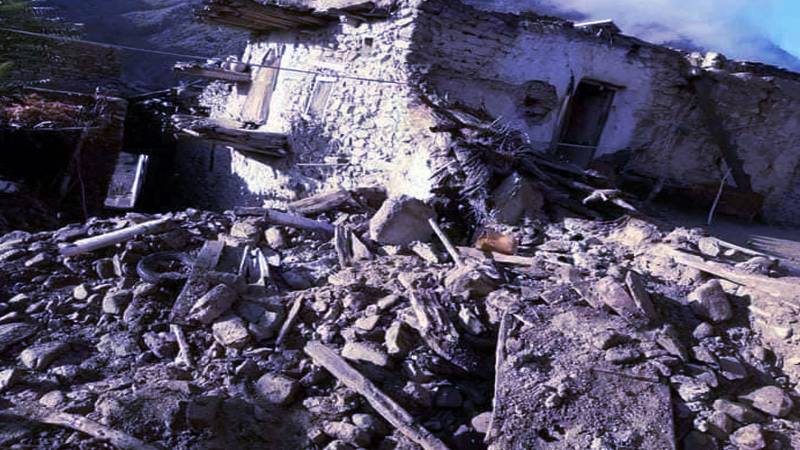
An earthquake of 6.3 magnitude on the Richter Scale rocked Northwestern Afghanistan on Wednesday, the German Research Centre for Geosciences (GFZ) said.
According to the centre, the quake occurred at a shallow depth of 10 kilometers and was one of many aftershocks that rattled regions of Afghanistan over the weekend.
According to the United States Geological Survey, the earthquake's epicenter was around 29 kilometers north west of Herat city in the country's northwest. The USGS said that the earthquake occurred on east-west striking fault planes that dip to either the north or south.
Afghanistan Disaster management spokesperson Janan Sayeeq told Reuters that there were no preliminary reports of injuries brought on by the most recent earthquake.
The region was previously shaken by an earthquake that destroyed entire villages and affected 12,000 people, according to estimates from the United Nations (UN). Rescue teams and volunteers have been working on the ground to find the survivors.
The number of individuals killed and injured in the prior earthquakes has been reported by local and national officials in different numbers, although the disaster ministry has said that 2,053 people perished.
The disaster management ministry's spokesperson, Mullah Janan Sayeq, stated that "we can't give exact numbers for dead and wounded as it is in flux."
Following the earthquake that occurred in Herat city, which is home to more than 500,000 people, there were no additional casualties immediately reported.
According to the United Nations, the previous earthquakes entirely devastated at least 11 villages in the Zenda Jan area of Herat province.
Mohammad Naeem, 40, told AFP that he lost 12 relatives, including his mother, in the earthquakes that occurred on Saturday. "Not a single house is left, not even a room where we could stay at night," he said.
Because they were afraid of aftershocks after the weekend earthquakes, many Herat residents were said to have been spending their evenings in open-air tents.
Large-scale housing provision will be difficult for Afghanistan's Taliban government, which took control in August 2021 and has strained relations with Western humanitarian agencies.
Although fatal earthquakes often affect Afghanistan, the calamity over the weekend was the deadliest to batter the war-torn country in more than 25 years.

